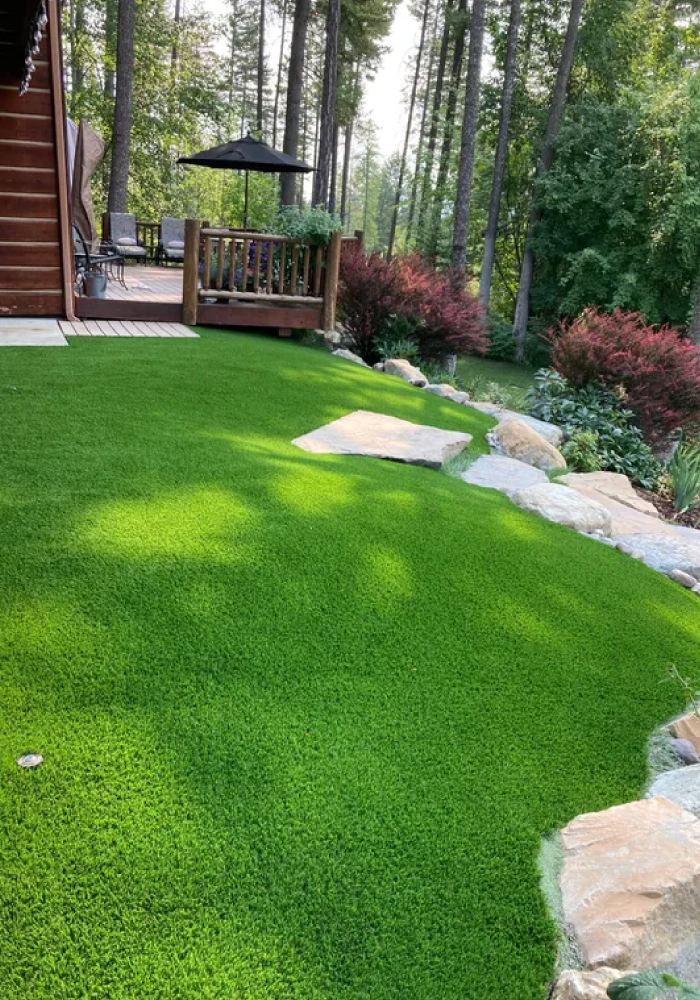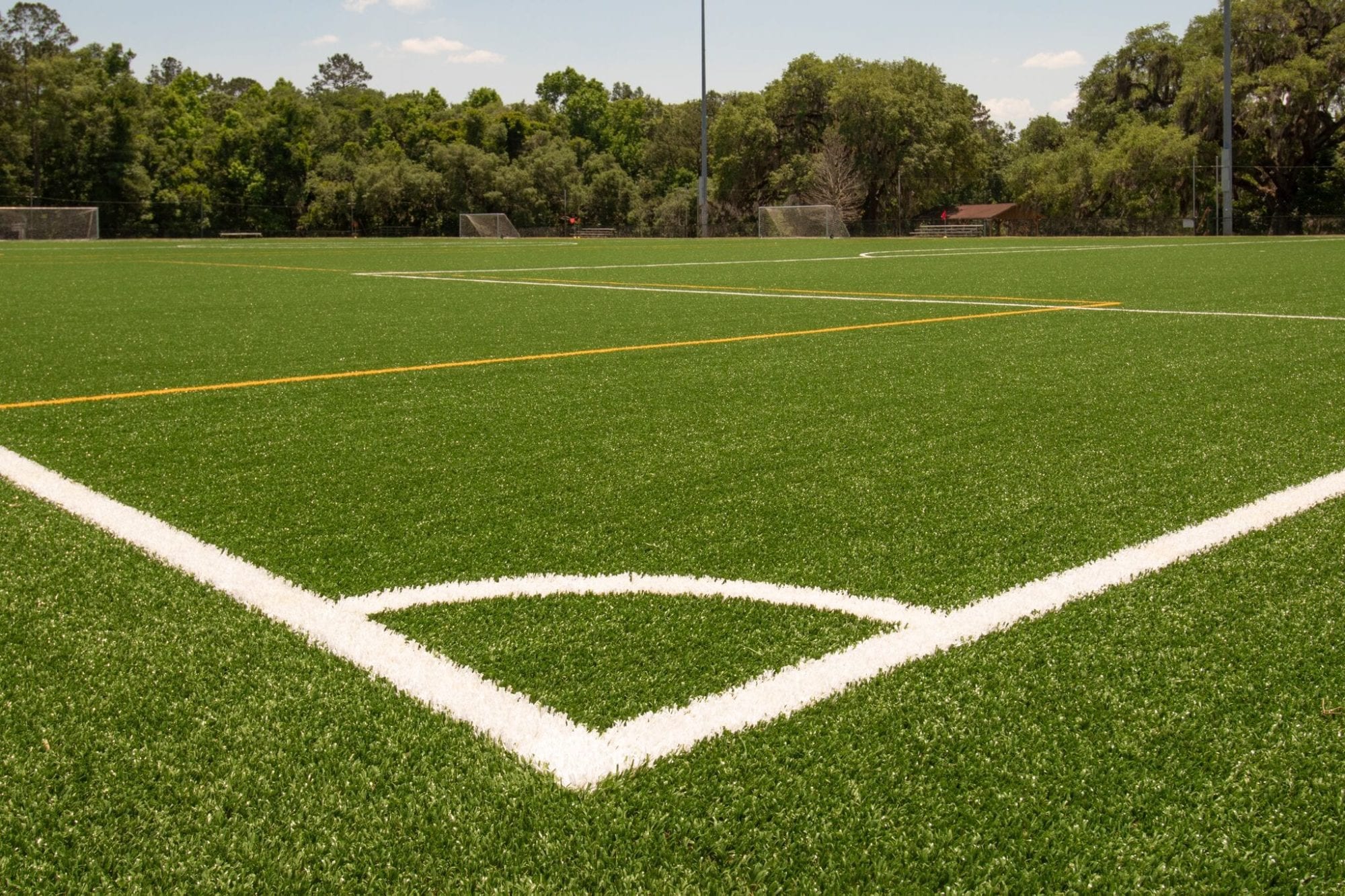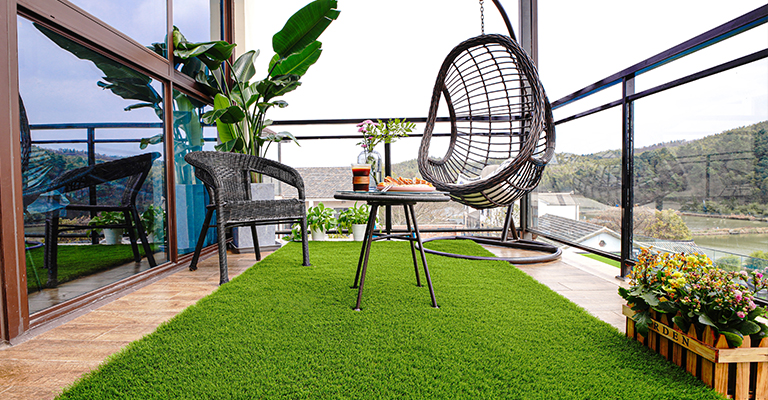Top Phoenix Turf Companies Delivering Premium Synthetic Lawn Products
Top Phoenix Turf Companies Delivering Premium Synthetic Lawn Products
Blog Article
Delve Into the Environmental Perks of Opting for Artificial Turf Solutions
The adoption of fabricated lawn options offers a compelling opportunity to address pushing environmental difficulties. By dramatically decreasing water usage and decreasing the application of dangerous chemicals, these choices not only promote lasting landscaping yet additionally protect local ecosystems. Moreover, the lower carbon impact related to reduced maintenance activities contributes to an extra lasting technique to land monitoring. The implications of these benefits expand beyond simple preservation efforts, raising concerns regarding their long-term influence on habitat conservation and total ecological equilibrium. Discovering these dimensions reveals a complicated interaction worth taking into consideration.
Water Preservation Perks
One of the most substantial benefits of synthetic turf is its ability to conserve water. In comparison, man-made turf does not require watering, dramatically lowering the total demand for water resources.
By removing the requirement for regular watering, man-made turf adds to sustainable landscape methods and helps minimize the environmental influence of excessive water usage. The conservation of water expands to the reduction of drainage, which can lead to dirt erosion and waterway contamination.
Additionally, the installation of synthetic grass permits municipalities and property owners to allot water resources extra efficiently, concentrating on crucial uses such as alcohol consumption water and farming. The shift in the direction of synthetic grass not just advertises responsible water use however additionally straightens with more comprehensive environmental goals intended at protecting natural deposits.
As neighborhoods progressively focus on sustainability, the water conservation advantages of synthetic grass offer an engaging case for its adoption in industrial and property landscape design tasks.
Reduced Chemical Use
The change to artificial grass dramatically lowers the dependence on chemical therapies generally used in all-natural yard upkeep. Standard grass administration commonly entails the application of herbicides, chemicals, and fertilizers to advertise development and control bugs. These chemicals can present risks to human health, local wild animals, and the atmosphere, adding to dirt and water contamination.
In contrast, fabricated turf eliminates the need for these hazardous materials. By reducing the release of artificial substances right into the environment, fabricated lawn promotes much healthier soil and water systems.
Additionally, the absence of chemical drainage connected with man-made grass installations assists safeguard regional rivers from air pollution, sustaining aquatic life and preserving biodiversity. Turf installation phoenix az. As areas increasingly prioritize sustainable techniques, choosing fabricated grass presents a feasible option that aligns with environmental conservation objectives. Via this shift, homeowner can appreciate lush eco-friendly rooms without jeopardizing eco-friendly health, leading the way for a more sustainable future
Lower Carbon Impact

Moreover, the installation of synthetic grass can result in substantial water preservation. All-natural lawns require significant quantities of water for Resources irrigation, which not only contributes to the carbon impact connected with water removal and therapy however also see here pressures local water sources. In contrast, synthetic turf needs marginal maintenance, needing no watering, thereby considerably decreasing water usage and its associated power prices.
Additionally, the long life of synthetic grass adds to its decreased carbon impact. With a life expectancy of up to 15 years or even more, the requirement for constant replacements is reduced, resulting in less waste and reduced energy intake in production and getting rid of typical turf choices. In general, synthetic grass provides a sustainable option for ecologically aware landscaping.
Environment Conservation
Environment preservation is a crucial factor to consider in the debate over landscape design options, particularly when comparing synthetic grass to all-natural grass. Natural yard lawns commonly call for extensive maintenance, including using herbicides, fertilizers, and chemicals, which can negatively affect local ecosystems. These chemicals can seep right into the dirt and waterways, damaging indigenous plants and fauna and interrupting neighborhood environments.
Artificial grass eliminates the demand for hazardous chemicals, consequently safeguarding neighboring wild animals and keeping the stability of bordering ecological communities. The installation of synthetic grass can lead to the conversion of previous grass locations into more biodiverse landscapes, such as pollinator yards or indigenous plant locations, which can sustain regional wild animals.
Ultimately, the transition to synthetic grass not only preserves water and decreases maintenance initiatives however also fosters a more harmonious relationship between human activities and the natural environment, advertising habitat conservation while doing my site so.
Long-Term Sustainability
Long-term sustainability is a crucial aspect in reviewing the advantages of synthetic grass over typical grass lawns. Among the most considerable advantages of synthetic grass is its sturdiness; it can last up to 15-20 years with very little maintenance, whereas natural grass requires constant reseeding and substitute. This long life minimizes the requirement for constant sources, such as water, plant foods, and chemicals, which are essential for maintaining a healthy yard lawn.
Additionally, artificial lawn adds to a decrease in carbon exhausts associated with lawn care equipment. Typical yards typically call for gas-powered mowers, trimmers, and blowers, every one of which add to air pollution. Arizona turf. On the other hand, man-made lawn removes the demand for such tools, promoting a cleaner atmosphere
Moreover, the production of synthetic grass significantly makes use of recycled products, enhancing its sustainability account. As manufacturers take on environmentally friendly techniques, the environmental footprint of fabricated lawn remains to diminish.

Final Thought
The fostering of artificial lawn services presents significant environmental advantages, consisting of significant water preservation, lowered dependence on harmful chemicals, and a reduced carbon footprint. Fabricated lawn aids in protecting natural environments by lessening land disruption and advertising long-term sustainability through the usage of resilient materials. Collectively, these variables underscore the capacity of synthetic grass to contribute favorably to ecological wellness and offer a viable choice to conventional landscape design techniques in an increasingly resource-conscious world.
In comparison, fabricated lawn does not require watering, substantially minimizing the total demand for water sources. By reducing the release of synthetic substances into the community, artificial grass promotes healthier soil and water systems.
Furthermore, the installment of man-made lawn can result in substantial water conservation. In contrast, artificial turf requires very little upkeep, needing no watering, thus considerably minimizing water usage and its linked energy prices.

Report this page